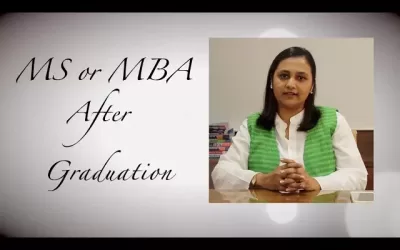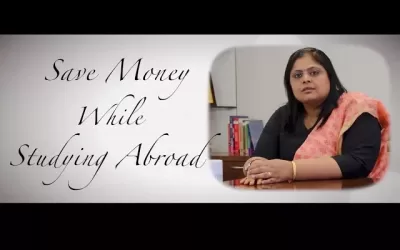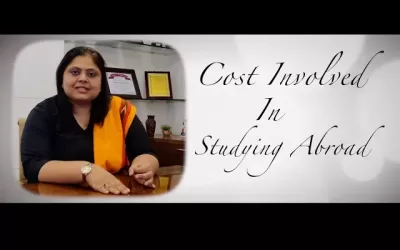With numerous options for courses to study abroad?

Courses to Study Abroad is your comprehensive guide to understanding the myriad educational options available to international students, helping you navigate the diverse array of courses and disciplines offered across the globe.
why are we still confused about what course to select? As the education industry changes, the competition increases, and students wish to get ahead of everyone, making them choose unique career paths. Selecting a top/trending course to study abroad is something that all of us want, but while choosing a top course, you need to plan a proper career path.
Each course you plan to select is a unique mix, and you will need to know the careers it leads to, for which you will need help from a university advisor and a career counselor. So, when discussing the trending courses to study abroad, let’s see a few study abroad program options: –
- MBA –(If selecting any specialization –International Management, Finance, Human Resource, etc.)
- Data Science
- Artificial Intelligence
- Computer Science
- Stem Degrees
- Health Care
- Management
Pursuing top courses at good universities will require planning and budgeting since it is a considerable investment, and we would want good returns. The other important aspects will include considering the quality of education, learning methodologies, and international exposure you get in that country. Trying to get a match between your profile and university is very important. Just applying to top universities does not guarantee success. Many factors are essential to achieve success. So instead of selecting a top course, choose a course that suits your profile.
 Many programs will help you expand and gain experience in the field but with additions like – opportunities to learn foreign languages and a new subject to complement your field of study, which will allow you to explore yourself more.
Many programs will help you expand and gain experience in the field but with additions like – opportunities to learn foreign languages and a new subject to complement your field of study, which will allow you to explore yourself more.
So before selecting any course, list your interests and spend some time attending virtual university webinars, understanding the course, and visiting the college websites to know about the university – subjects offered, type of courses & approximate cost of living.
Also, there are many education-related activities you can attend that are organized, where you can speak to the university representatives directly to learn about the admission process, scholarships, internships, and waivers (if any). Try to get as much information as possible and connect study abroad counselor for a career map and admission process.
This will help you get into a course that fits you right and a university that is known for that particular field; this can only happen if you research for yourself. List your choices, research, attend webinars online/offline, and then finalize. It is not essential for us to only select a top course but to select the right course in a good university.
Frequently Asked Questions (FAQs) – Top Courses to Study Abroad
Q1: Why should I consider studying abroad for my course of study?
Studying abroad offers a chance to experience new cultures, gain a global perspective, access high-quality education, and enhance your career prospects through exposure to international networks.
Q2: How do I choose the right course to study abroad?
Consider your academic interests, career goals, preferred location, program duration, and the university’s reputation. Research thoroughly to find courses that align with your aspirations.
Q3: Are courses taught in English available worldwide?
Yes, many universities around the world offer courses taught in English, making it accessible to international students who might not be fluent in the local language.
Q4: What disciplines are available for international students to study abroad?
There’s a wide range of disciplines available, from traditional fields like business, engineering, and medicine to emerging areas like data science, sustainable development, and creative arts.
Q5: Can I pursue short-term courses or certifications abroad?
Absolutely. Many universities offer short-term courses, workshops, and professional certifications that cater to international students looking for specific skill enhancement.
Q6: What are the benefits of pursuing research-intensive programs abroad?
Research-intensive programs offer the opportunity to work closely with esteemed professors, access advanced facilities, and contribute to cutting-edge research in your field.
Q7: How do I find scholarship opportunities for courses abroad?
Research the scholarship and financial aid options available at your chosen universities. Additionally, explore external scholarship programs offered by governments, organizations, and foundations.
Q8: Are there options for hands-on learning and practical experience in courses abroad?
Yes, many courses emphasize practical learning through internships, co-op programs, fieldwork, and industry collaborations, providing valuable real-world experience.
Q9: Can I change my course of study after arriving abroad?
While it’s possible to change your major, it’s important to consider the implications, such as program requirements, additional time and financial investment, and potential impact on your visa status.
Q10: How can I assess the reputation and quality of a course and university?
Check university rankings, faculty credentials, alumni success stories, program accreditation, and research output. Reach out to current students and alumni for firsthand experiences.
Q11: Should I consider the course’s alignment with future job opportunities?
Yes, choose a course that aligns with your career goals and offers relevant skills. Consider the university’s industry connections, career services, and internships to enhance job prospects.
Q12: What is the significance of cultural integration in choosing a course abroad?
Cultural integration enhances your overall experience. Choosing a course in a country with a culture that intrigues you can provide opportunities to engage with local communities and broaden your worldview.
Q13: Can I pursue postgraduate courses in a different field from my undergraduate degree?
Yes, many universities accept students from diverse academic backgrounds for postgraduate programs. However, you might need to fulfill certain prerequisites or bridge courses.
Q14: How can I find courses that match my passions and interests?
Explore university websites, course catalogs, and online platforms, and attend education fairs to discover courses that align with your unique passions and aspirations.
Q15: Can I get credit transfers for courses completed abroad?
Some universities offer credit transfers for courses completed abroad. However, the transferability depends on your home institution’s policies and the course’s compatibility.






